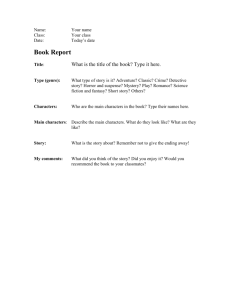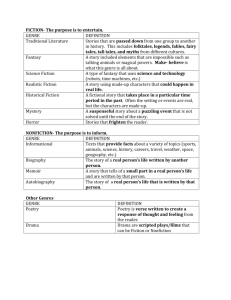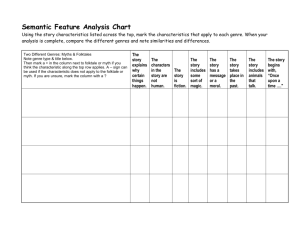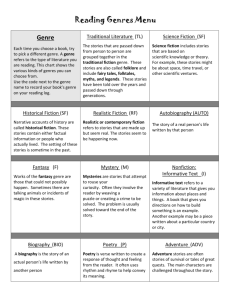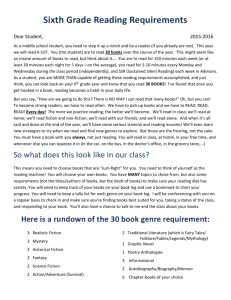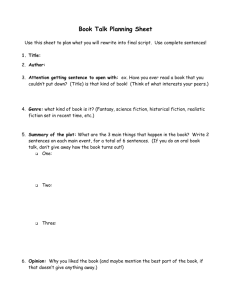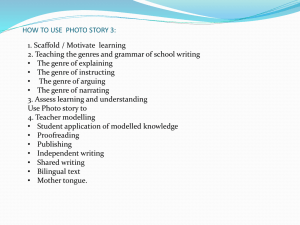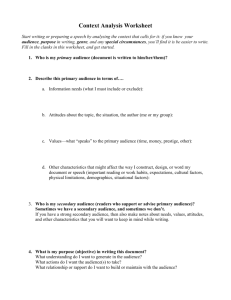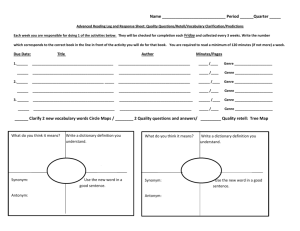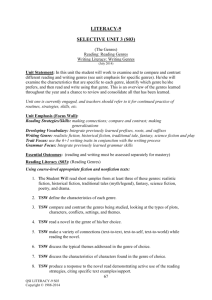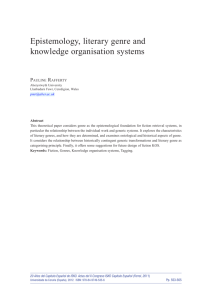Book Club Task Cards
advertisement
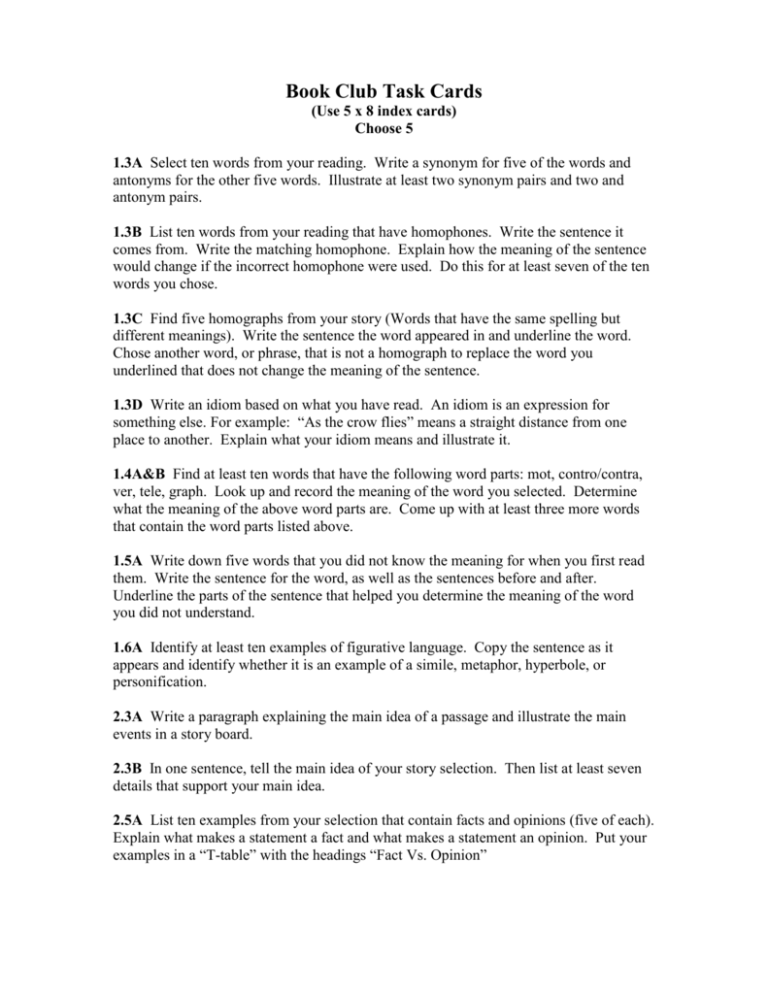
Book Club Task Cards (Use 5 x 8 index cards) Choose 5 1.3A Select ten words from your reading. Write a synonym for five of the words and antonyms for the other five words. Illustrate at least two synonym pairs and two and antonym pairs. 1.3B List ten words from your reading that have homophones. Write the sentence it comes from. Write the matching homophone. Explain how the meaning of the sentence would change if the incorrect homophone were used. Do this for at least seven of the ten words you chose. 1.3C Find five homographs from your story (Words that have the same spelling but different meanings). Write the sentence the word appeared in and underline the word. Chose another word, or phrase, that is not a homograph to replace the word you underlined that does not change the meaning of the sentence. 1.3D Write an idiom based on what you have read. An idiom is an expression for something else. For example: “As the crow flies” means a straight distance from one place to another. Explain what your idiom means and illustrate it. 1.4A&B Find at least ten words that have the following word parts: mot, contro/contra, ver, tele, graph. Look up and record the meaning of the word you selected. Determine what the meaning of the above word parts are. Come up with at least three more words that contain the word parts listed above. 1.5A Write down five words that you did not know the meaning for when you first read them. Write the sentence for the word, as well as the sentences before and after. Underline the parts of the sentence that helped you determine the meaning of the word you did not understand. 1.6A Identify at least ten examples of figurative language. Copy the sentence as it appears and identify whether it is an example of a simile, metaphor, hyperbole, or personification. 2.3A Write a paragraph explaining the main idea of a passage and illustrate the main events in a story board. 2.3B In one sentence, tell the main idea of your story selection. Then list at least seven details that support your main idea. 2.5A List ten examples from your selection that contain facts and opinions (five of each). Explain what makes a statement a fact and what makes a statement an opinion. Put your examples in a “T-table” with the headings “Fact Vs. Opinion” 2.6A Compare the story you are reading to a similar story you have already read. Make a Venn diagram that illustrates the similarities and differences between either the main characters of the two stories, or the plot of both stories. 3.1A Write a short poem about the book you are reading. It does not have to rhyme or have a particular rhythm. Identify whether the original genre is fiction, non fiction, or drama. 3.1B Identify the genre of your book. Explain how the story would be changed if the novel were written in a different genre, such as non-fiction, science fiction, or horror. (These are not the only genres to explore). How would you rewrite a passage you read to one of these genres? 3.1C Explain why the author used the particular genre for the book.. Could another genre have worked? If you were to choose another genre, what would it be? 3.2A Illustrate the main conflict or problem in the story. Make a web that shows the characters involved and how they relate to each other. If there is more than one conflict or problem, you may illustrate more than one. 3.2B Make a visual map that shows the steps to solving the main problem or conflict in the story. Include a key that represents the main characters and continuous events. Add color and creativity. 3.3A Draw a picture of the main characters. Make sure your illustration demonstrates how the characters are alike and how they are different physically. Include a dialogue bubble that would show what the character is thinking in order to show how the characters are the same or different mentally and emotionally. 3.4A Explain the theme, or moral, of the story you read. Give an example of how you can apply this to your own life. 3.7A Explain how you feel about the main character. Do you like him or her? Why or why not? What about the protagonist (bad guy) in the story? How do you feel about him or her? What character do you most strongly relate to? Why do you think the author chose to create the main character like that?
